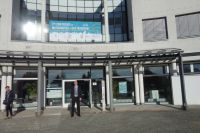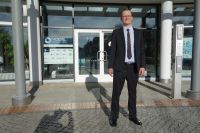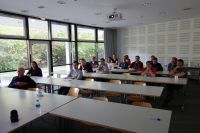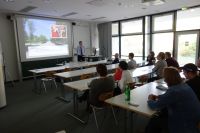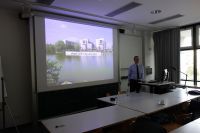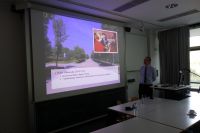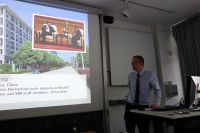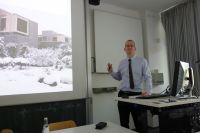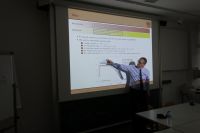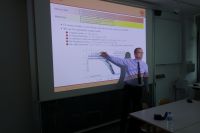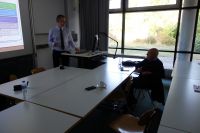On October 8, 2018, I gave the research talk Automating Scientific Research in Optimization at the Mathematics of Transportation and Logistics group of Prof. Dr. Ralf Borndörfer at the Mathematical Optimization department, Mathematical Optimization and Scientific Information division of the Zuse Institute Berlin (ZIB) in Berlin, Germany.
The Mathematical Optimization department of the ZIB contributes research on modeling, simulation, and optimization methods for difficult problems in transport and logistics, telecommunications, energy supply, and healthcare. They combine theoretical insight and practical experience to optimization software for cooperation partners such as Lufthansa or Deutsche Bahn. The group is strong in fundamental research on branch-and-cut-and-price algorithms, graph theory, combinatorics, algorithmic game theory, and convex optimization, especially applicable to large-scale models. They often combine multiple different aspects of a real-world optimization problem, such as different objectives, handle data uncertainty, parallelize algorithms, and develop new decomposition techniques, as well as adaptive and dynamic methods.
Prof. Borndörfer has worked on many interesting projects, especially with the goal to improve the efficiency of public and private transportation systems, such as optimized infrastructure design with respect to passenger behavior in public transport, rolling stock roster planning for railways, multi-day cyclic rotations for trains, service design in public transport, solving the vehicle positioning problem, airline crew scheduling, and cyclic roster planning in public transport.
The background of this group is highly interesting for me. On one hand, our team member Dr. Zijun Wu, works on algorithmic game theory especially with respect to traffic optimization. On the other hand, we also have conducted quite a lot of research on logistics too, e.g., for the Traveling Salesman Problem. There was much to discuss – especially since the algorithm performance analysis methods we develop also fit to the iterative natures of algorithms of the branch-and-bound family.
It was a real pleasure to visit this research group, to meet Prof. Borndörfer and to meet Prof. Möhring again, who helped in arranging the meeting. I am very thankful to both professors and to the kind audience. really enjoyed our talk.



